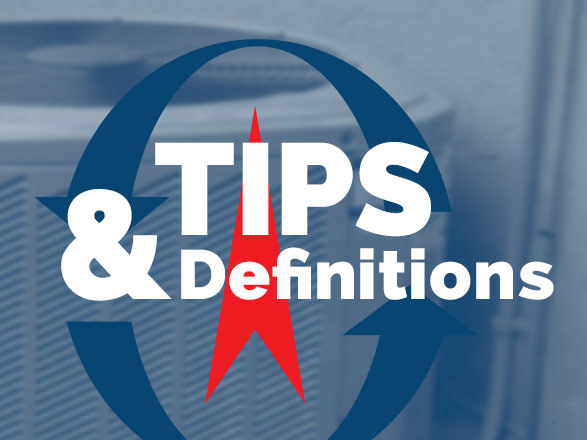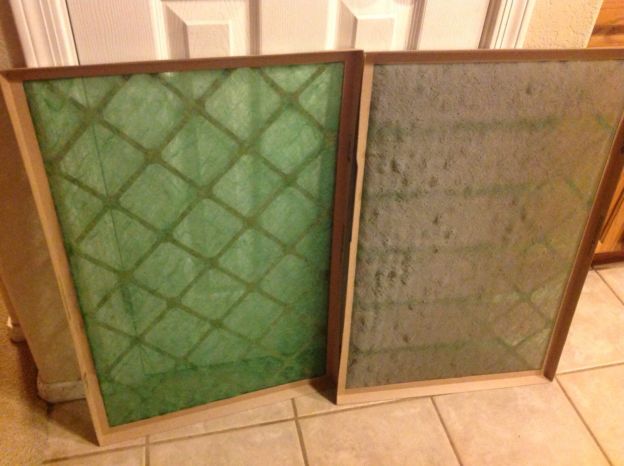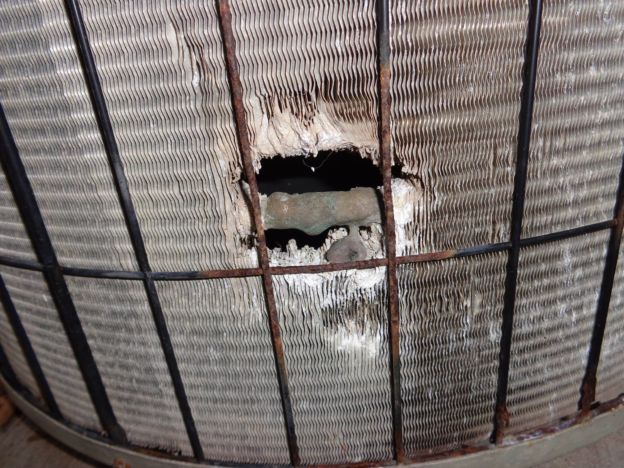4 Tips to Keep Your AC in Good Shape During 2018
December 18, 2017

2018 can be the year you accomplish many things: weight loss, financial savings, etc.
But don’t let it be the year you prematurely kill your AC—and find yourself facing a $5,500 bill to replace your air conditioner.
To avoid that, let’s take a look at 4 tips that will keep your AC healthy and strong throughout 2018:
- Check your filter
- Don’t cover your AC condenser
- Keep dogs away from the condenser
- Get annual maintenance
Tip #1: Check your filter
You air filter is the bodyguard to the inner components of your AC system. You see, filters are made of tightly woven material (fiberglass, paper or cloth) that trap harmful air pollutants before they can make their way into the HVAC system.
But if you don’t change your filter once it gets dirty, you’re at risk of suffocating your system. Think of it this way: Not replacing a dirty, clogged filter works the same way as holding a thick blanket over your nose and mouth.
The end result? A system that has to work harder to “breathe” and function properly.
And if your AC is struggling to cool your home, you’ll see:
- Higher than normal energy bills
- Increased repairs due to motors and other components straining
- An AC system that will shut down due to overheating
Our suggestion? Check your filter every 1 to 3 months. If it looks like the filter to the right in the picture below, change it out.
Related: Forget to Change Your Air Filter? 3 Reasons You May Regret It

Tip #2: Don’t cover your AC condenser
Some homeowners are tempted to cover up that big metal box in their backyard. And, to be fair, some “decorative” AC covers look pretty neat.
But here’s their huge downfall: they kill your AC.
Your AC condenser (the outdoor unit) is responsible for dumping all the heat from your home into the outdoor air. But if you cover it, you trap that heat inside the condenser, which eventually means heat will be sent right back into your home.
At best, this will force your AC system to work harder and longer to cool your home. At worst, it will eventually kill your compressor (a $2,375 repair).
Our suggestion? Resist the temptation to make your AC “pretty” by stuffing it under cool decorative covers. Better yet, make sure your AC has at least 2 to 3 feet of “breathing room” on all sides (this means clearing away debris, shrubbery, etc.).
Tip #3: Keep dogs away from your AC condenser
Fun fact: dog pee is extremely corrosive. And if your best friend decides to mark his territory on your outdoor unit, you now have a problem.

Example of what dog pee can do to your outdoor unit.
You see, your outdoor unit is covered in metal grating. Those metal grates help your outdoor unit dump all the heat it’s collected from the air inside your home. So, if your dog is repeatedly urinating on these metal grates, they will eventually corrode—decreasing your AC system’s efficiency.
Our suggestion? If your dog is prone to urinating on your outdoor unit, set up a fence around your outdoor unit. But be careful not to suffocate your condenser! Instead, choose a fence that isn’t solid (so your unit can still dump heat into the air) and install the fence 3 feet from your unit.
Tip #4: Have your AC maintained once a year
As the saying goes, “a maintenance visit a year keeps the technician away”.
(Okay that’s not the saying at all but there’s truth in that statement!)
In fact, according to Energy Star, regular maintenance:
- Prevents future repairs
- Keeps your HVAC system working at peak performance (i.e. lower monthly energy bills)
And the best part? You really only need to have your AC maintained once a year. So it’s pretty painless when it comes to how much time and money you need to invest in AC maintenance.
Our suggestion is to have your AC maintained right before the cooling season (i.e. end of March) to make sure that your air conditioner is ready for the challenging Florida summer ahead.
Related: Air Conditioner Maintenance: 5 Tips to Find a Good Contractor
Have more cooling questions for us?
We’re happy to help.
Just contact us for all of your air conditioner (and even heating) questions.
- Posted in:

